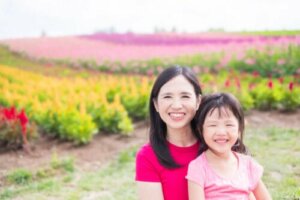6 Chinese Proverbs on Childhood Education


Written and verified by the psychologist Ana Couñago
Chinese proverbs are advice and teachings that invite you to reflect deeply on important aspects of life. These wisdom-filled messages have been passed down from generation to generation to the present day and are still considered to be totally valid and useful today.
Want to know what some of these proverbs say about childhood education? Keep reading!
Six Chinese proverbs on childhood education

1. “You give a poor man a fish and you feed him for a day. You teach him to fish and you give him an occupation that’ll feed him for a lifetime”
This inspiring phrase tries to convey the idea that children should be prepared to be autonomous and independent, to be able to stand on their own two feet in life.
Teaching doesn’t consist of giving children everything they want or doing everything for them. Rather, it’s about providing the tools they need to reach the goal in question without the need for constant help.
2. Another of the Chinese proverbs: “If you’re planning for a year, sow rice; if you’re planning for a decade, plant trees; but if you’re planning for a lifetime, educate people”
This proverb means that educating another human being is the most important and enriching plan you can have in this life, because, someday, the child you educate will grow up to be an adult capable of contributing good things to society.
3. “I hear and I forget, I see and I remember, I do and I understand”
This Chinese proverb conveys a wise message, and it’s that doing things is the best way to learn. Through practice, children learn more and better. Therefore, we must instill in them an education in which they’re the main protagonists of their own learning and show an active attitude towards the acquisition of new knowledge and skills.
4. “Teachers open the door but you must walk through it yourself“
Teachers, parents, or other close family members are usually the main role models in the education of minors. But this doesn’t necessarily mean that children learn everything they can from these people, as they themselves must show interest, motivation, and a predisposed attitude to learn, something that no one can do for them.
5. “Learning is a treasure that’ll follow its owner everywhere”
Learning that’s acquired in a meaningful way is never forgotten. That’s why it’s so important to invest in early education, so little ones, from their earliest years, are surrounded by learning experiences that are useful for their integral development throughout their lives.

6. “Indigo blue is extracted from the indigo plant, but is bluer than the plant it comes from”
What does this mean? It means that children must be educated with the intention of being better than their predecessors. The idea is to create a better future society and, for that, the new generations have to surpass their predecessors in different aspects of life. In fact, this should be the main objective of mothers, fathers, teachers, etc.
Education and Chinese proverbs
Just as any culture, the Chinese have a collection of phrases and proverbs that are intended to help you cope with life in an intelligent and sensible way.
As you’ve been able to see, Chinese proverbs explain, in a simple way, with simple language and using few words, very complex and relevant topics for everyday life. This is what makes these proverbs so striking and interesting.
To conclude, the proverbs we’ve shown you in this article are just a few examples, but there are many other Chinese proverbs that deal with childhood education. And now we invite you to look for more on your own!
Chinese proverbs are advice and teachings that invite you to reflect deeply on important aspects of life. These wisdom-filled messages have been passed down from generation to generation to the present day and are still considered to be totally valid and useful today.
Want to know what some of these proverbs say about childhood education? Keep reading!
Six Chinese proverbs on childhood education

1. “You give a poor man a fish and you feed him for a day. You teach him to fish and you give him an occupation that’ll feed him for a lifetime”
This inspiring phrase tries to convey the idea that children should be prepared to be autonomous and independent, to be able to stand on their own two feet in life.
Teaching doesn’t consist of giving children everything they want or doing everything for them. Rather, it’s about providing the tools they need to reach the goal in question without the need for constant help.
2. Another of the Chinese proverbs: “If you’re planning for a year, sow rice; if you’re planning for a decade, plant trees; but if you’re planning for a lifetime, educate people”
This proverb means that educating another human being is the most important and enriching plan you can have in this life, because, someday, the child you educate will grow up to be an adult capable of contributing good things to society.
3. “I hear and I forget, I see and I remember, I do and I understand”
This Chinese proverb conveys a wise message, and it’s that doing things is the best way to learn. Through practice, children learn more and better. Therefore, we must instill in them an education in which they’re the main protagonists of their own learning and show an active attitude towards the acquisition of new knowledge and skills.
4. “Teachers open the door but you must walk through it yourself“
Teachers, parents, or other close family members are usually the main role models in the education of minors. But this doesn’t necessarily mean that children learn everything they can from these people, as they themselves must show interest, motivation, and a predisposed attitude to learn, something that no one can do for them.
5. “Learning is a treasure that’ll follow its owner everywhere”
Learning that’s acquired in a meaningful way is never forgotten. That’s why it’s so important to invest in early education, so little ones, from their earliest years, are surrounded by learning experiences that are useful for their integral development throughout their lives.

6. “Indigo blue is extracted from the indigo plant, but is bluer than the plant it comes from”
What does this mean? It means that children must be educated with the intention of being better than their predecessors. The idea is to create a better future society and, for that, the new generations have to surpass their predecessors in different aspects of life. In fact, this should be the main objective of mothers, fathers, teachers, etc.
Education and Chinese proverbs
Just as any culture, the Chinese have a collection of phrases and proverbs that are intended to help you cope with life in an intelligent and sensible way.
As you’ve been able to see, Chinese proverbs explain, in a simple way, with simple language and using few words, very complex and relevant topics for everyday life. This is what makes these proverbs so striking and interesting.
To conclude, the proverbs we’ve shown you in this article are just a few examples, but there are many other Chinese proverbs that deal with childhood education. And now we invite you to look for more on your own!
This text is provided for informational purposes only and does not replace consultation with a professional. If in doubt, consult your specialist.








